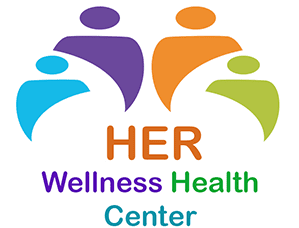Click HERE To Buy Stromectol Online ↓

The Devastating Impact of River Blindness Worldwide
River blindness, or onchocerciasis, is a debilitating disease caused by the parasitic worm Onchocerca volvulus. It primarily affects impoverished communities in Africa, Latin America, and Yemen, leading to severe skin irritation and irreversible blindness if left untreated. This disease profoundly impacts not only the physical health of individuals but also the economic vitality of entire communities. People suffering from river blindness often experience social isolation and decreased productivity, which compounds their poverty.
The efforts to combat river blindness require immediate, or "stat," action, facilitated by organizations and healthcare workers around the globe. A critical part of this effort involves the distribution of Stromectol, a life-changing drug. Ensuring accessibility to this medication can mean the difference between a life of darkness and one filled with hope.
| Region | Impact |
|---|---|
| Africa | Severe skin issues and blindness |
| Latin America | Economic decline and social isolation |
| Yemen | Decreased productivity and worsened poverty |
Stromectol: a Revolution in Treatment and Prevention

Stromectol represents a groundbreaking shift in how river blindness is treated and prevented. This remarkable drug has quickly risen as the go-to 'Rx' for millions suffering from this debilitating disease. Healthcare providers often find themselves in awe of its effectiveness, describing it as an ‘elixir’ for the afflicted. By disrupting the life cycle of the parasitic worms causing river blindness, Stromectol drastically reduces symptoms and transmission rates.
One compelling aspect of Stromectol is its efficient 'stat' action against the disease, making it a pivotal tool in mass drug administration campaigns. It has effectively slashed new infection rates, helping whole communities transition from despair to hope.
The Science Behind Stromectol’s Effectiveness
Stromectol, also known by its generic name ivermectin, operates by targeting the nervous system of the parasitic worms causing river blindness, effectively paralyzing and eventually killing them. This breakthrough compound medication works by binding to glutamate-gated chloride channels in the nerve and muscle cells of the parasite, causing an influx of chloride ions. The resulting hyperpolarization leads to neuromuscular paralysis and the death of these pathogens. Unlike many treatments that require complex administration, Stromectol offers a simpler solution. This makes it easier to implement and more effective in comp campaigns worldwide, providing immediate relief to affected populations while curbing the spread of the disease.
Stories of Hope: Lives Transformed by Stromectol

Grace, a young mother in a remote village in Ghana, had lost hope as river blindness gradually stole her vision, making daily tasks nearly impossible. But with the introduction of Stromectol through a local medical program, her world began to change. Following the script, she took her first dose and soon noticed her sight improving. Grace's story is just one among thousands, revealing the transformative power of this elixir.
Similarly, in a remote area of Cameroon, community health workers tirelessly count and pour Stromectol, ensuring residents receive their vital doses on time. John's life was transformed when he received his first dose stat; the medication not only halted further vision loss but improved his remaining sight, allowing him to return to work and support his family.
Despite challenges, such as the need for cold chain logistics in some regions, these stories of hope underscore the remarkable impact of Stromectol. From isolated villages to bustling urban centers, countless lives are being changed, illustrating the drug's profound effectiveness against river blindness.
Challenges in the Distribution and Accessibility of Stromectol
Despite Stromectol's proven effectiveness, distribution faces significant hurdles, particularly in remote regions. Accessibility is often hampered by logistical obstacles like the cold chain requirement, making it challenging to maintain the medication's integrity during transport. Furthermore, political instability and the lack of infrastructure in affected areas exacerbate these issues, often leading to delayed or missed treatments despite urgent needs.
Another challenge is the financial burden, both for procurement and distribution. Many affected regions rely heavily on donations and international aid. Budget constraints frequently lead to complications in sustaining a consistent supply. Moreover, regulatory barriers and prior authorization procedures slow down the process, making it difficult for communities to access this life-saving medication stat. Collaboration between governmental agencies, NGOs, and local communities is crucial to overcoming these challenges.
| Challenge | Description |
|---|---|
| Logistical Obstacles | Maintaining cold chain during transport |
| Political Instability | Delays and missed treatments in affected areas |
| Financial Burdens | Reliance on donations and international aid |
The Future of River Blindness Eradication Efforts
Efforts to eradicate river blindness require a multi-faceted approach combining medical advancements with robust distribution networks. The introduction of generics could significantly lower costs, increasing accessibility in impoverished regions. However, addressing logistical hurdles is crucial. Ensuring cold chain storage for Stromectol in remote areas will be critical to maintain its effectiveness, especially in tropical climates.
In parallel, engaging local communities through education and training healthcare workers can foster sustainable practices. Initiatives like mobile clinics or a "Drive-Thru" approach for dispensing medications could expedite treatment delivery. Optimistically, as countries unite and resources are pooled, the future points towards a world free from river blindness, a testament to global health collaboration.
